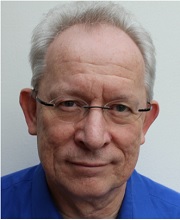SIG Migrant Care, International Health and Travel Medicine annual report
Guus Busser, convenor SIG on Migrant Care, International Health and Travel Medicine reports
General information

This SIG, founded in 2008, aims to improve the knowledge and skills of General Practitioners as well as organizational and financial conditions to deliver culturally competent, equitable and good quality primary care to migrants of all kinds: travelers, economic migrants as well as refugees, including the undocumented.
Organization and members
During the year 2018 Guus Busser, Principal Lecturer at Radboud University Medical Centre in Nijmegen, the Netherlands, gradually took over the chair of the SIG. As Maria van den Muijsenbergh, the former chair, and Guus are working at the same department their cooperation will continue.
The SIG has steadily grown over the years with a sharp rise recently: since May 2018 our membership has grown from 64 to 151 members, from 18 different nations to 32 nations. Members come from all over the world with a good representation from the UK, the Netherlands, Portugal, USA, Turkey, Australia and Brazil.
Members are involved in international research, medical (postgraduate) education and health care delivery related to refugees and other migrants. The enthusiastic participation of young family doctors, trainees and students is very welcome. A core group has formed over the years, all of whom are involved in teaching and/or research on migrant health and refugee care.
Activity in collaboration with WHO, either regionally or globally
Viviana Martinez Bianchi is a member of our SIG and is WONCA’s WHO Liaison.
At Nijmegen University and at the department of primary care several people collaborate with WHO in the field of public health (Prof Koos van der Velden) and primary care (Pim Assendelft) and patient record registration data processing (Dr Kees van Boven, member WONCA Working Party on International Classification, WICC).
Achievements over the last year
In 2018 we had a collaboration with Euract and WONCA WP on Education, to exchange and develop educational programs and materials related to culturally sensitive care of immigrants. We exchanged information on curricula and educational materials for GP training. We are seeking opportunities to publish educational programs on migration.
We continued our collaboration with the WONCA WP for Mental Health: joint guidance for mental health care of migrants will be completed in 2019.
The European book on migrant care, with contributions from several SIG members, will be published in 2019.
We started a collaboration with Vasco da Gama’s SIG Migrant Care, International Health & Travel Medicine.
As previously reported, in May 2018 we participated in a workshop on international collaboration on migrant care, migration health networks and the development / implementation of guidelines on migrant care. Subsequent to this we joined the new international initiative to establish a worldwide collaboration on migrant care.
Activities planned and in progress
Our main goal is to improve the communication and connectivity between our members. We hope to initiate more and new activities, including outside of WONCA meetings.
We have a Facebook page, https://www.facebook.com/SIGmigrantcare/. This is proving to be a very useful medium for sending and sharing information.
We plan to have a WhatsApp SIG group. Within this group we will exchange information and bring members of the SIG in easy contact with each other.
A web-based platform for exchanging educational material on migrant care would be very welcome. For this the support of WONCA will be necessary, providing a safe environment, yet easily accessible for members, maintaining and updating resources. At the moment this is too much of a challenge for our SIG alone. Collaboration with other SIGs may help to make it a reality.
We will continue to collaborate with the range of Working Parties and SIGs mentioned above.
We will strive to strengthen the connection and communication with WHO, which will be facilitated through the existing connections with WHO of our SIG members and through the department of Radboud University. We will also continue our collaboration with Euract, collaborating on workshops on communication with migrants.
To conclude, we can say our SIG is growing and several promising connections and collaborations have been made.
Join our SIG